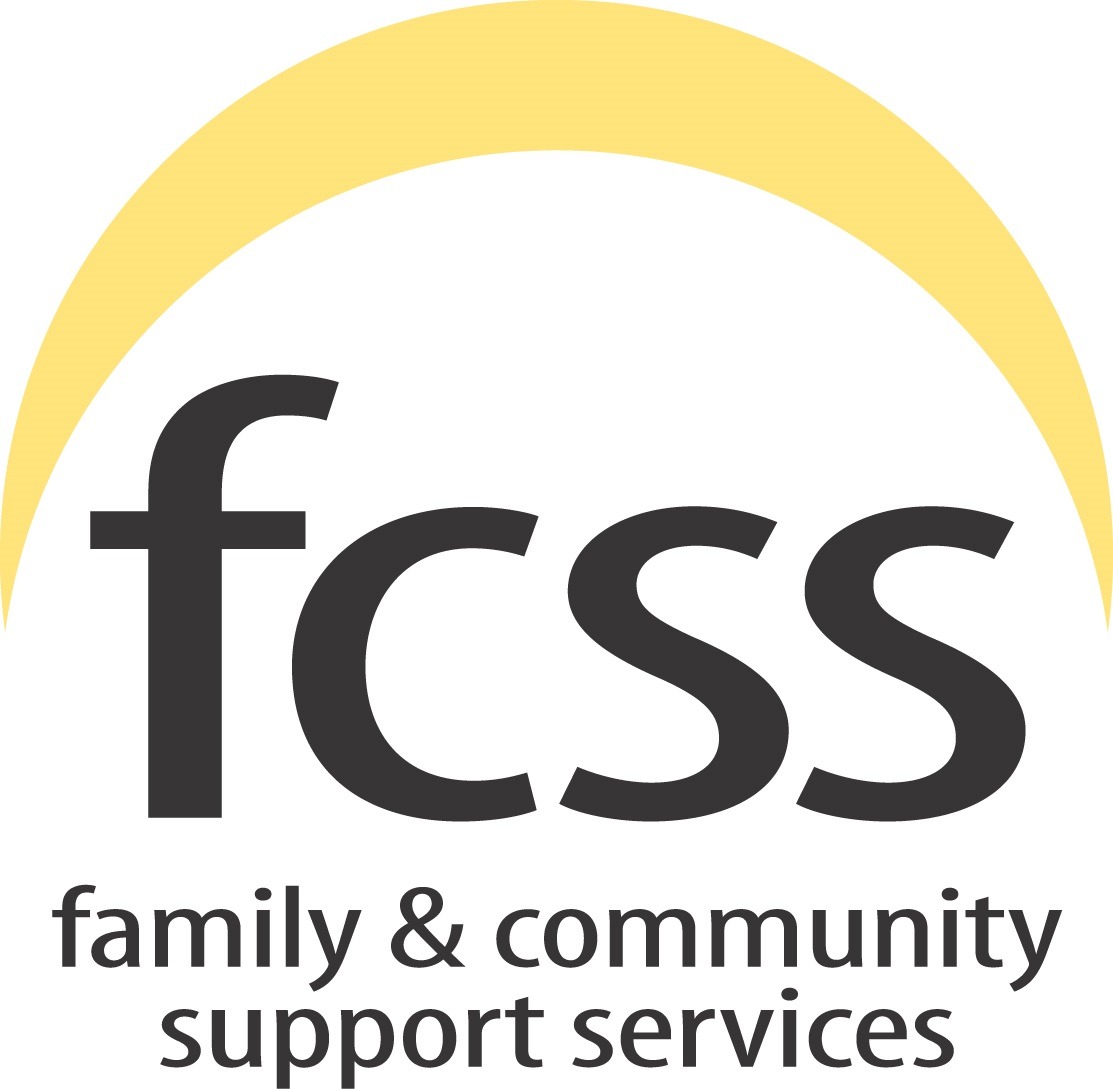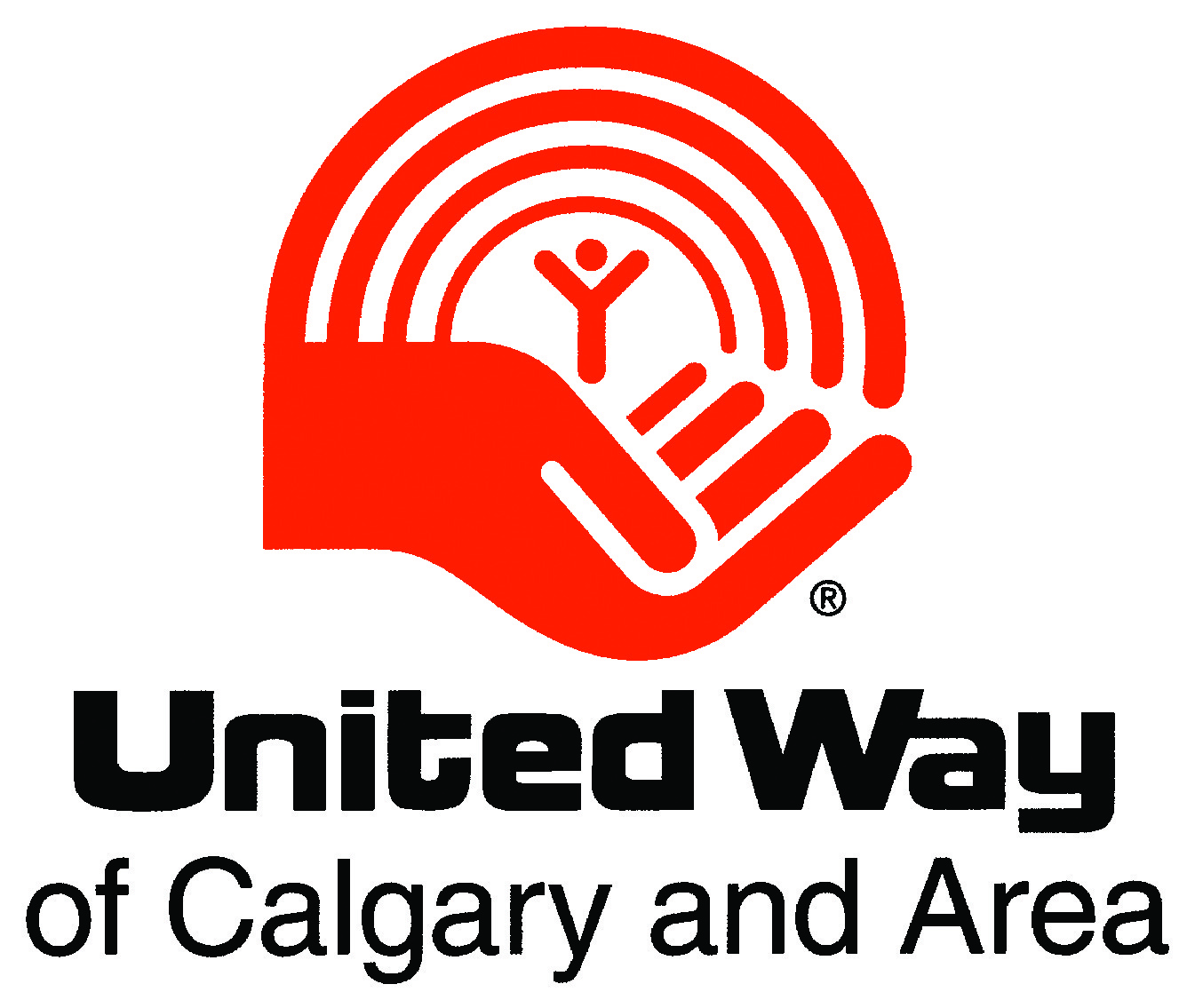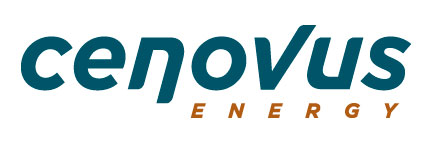Patch: providing critical services to those in need during the best and worst of times
Many of us missed things while staying at home during the early stages of the pandemic that we often take for granted — dining out, socializing, quick trips to the grocery store. But for those served by Hull Services’ Patch program, there were much more dire consequences.
Rather than missing restaurant meals, some were desperate to access enough food to simply feed their families — especially with their children home from school and missing out on meals provided there.
And while not owning a computer meant that Zoom sessions and Netflix binging weren’t the boredom-busting options some used to pass the time, more importantly it was a barrier for kids who were now trying to do their schooling from home and were already coping with huge disruptions to their learning.
Delaying services until the curve began to flatten or post-pandemic was not an option. Patch works with many people whose basic needs aren’t being met at the best of times. So the program team got creative to ensure that the persons we serve stayed connected to vital services and support.
“Patch is somewhere you can go where hope can be ignited again.” Tessa McGarrigle, Patch Program Director.
In addition to promoting financial literacy and economic wellbeing, Patch is designed to help build healthy connections and act as a community hub to bring people together. Finding ways to offer these types of services through distanced or virtual means can be challenging. Factor in language barriers, poverty and lack of access to technology and the challenge becomes even greater.
Coincidentally and fortunately, Patch uses a disaster framework that is useful for managing day-to-day stressors. The focus is on resiliency building so staff are versed in responsiveness, adaptability, prioritizing and being prepared; and are trained to work with those they serve to build those skills for themselves. Managing poverty/chronic stress/traumatic events requires similar supports as those impacted by disaster.
“We are capacity building at a community level,” says Tessa McGarrigle, Program Director, Hull Services’ Patch program. “We promote and teach healthy coping skills, so the people we serve are better prepared for unknown or challenging situations, whether a disaster, pandemic or family crisis.”
The Hull team was ready to get creative in delivering the various components of the collaborative community-based program. The one thing they were not prepared to do was close the community “hubs” where they are based, knowing how much our services are relied upon.
“Our staff were amazing — quickly responding, making decisions, and doing everything they could safely to ensure people still received support,” adds McGarrigle. “Patch is about building on people’s strengths and supporting one another as a community. We needed to be here for them.”
Delivery of services and programs that had been thoughtfully and purposefully developed with clients’ individuals needs in mind, were suddenly no longer viable due to physical-distancing requirements. As well, a general one-size-fits-all approach goes against the basic premise of what Patch does. Time was of the essence and solutions needed to be found.
“If our basic needs aren’t being met, it’s hard to address other needs in our life or manage through times of additional stress,” explains McGarrigle. “We are a haven for many in the community, including kids who are hungry at this time or families in need of support with at home schooling. We just can’t not be there.”
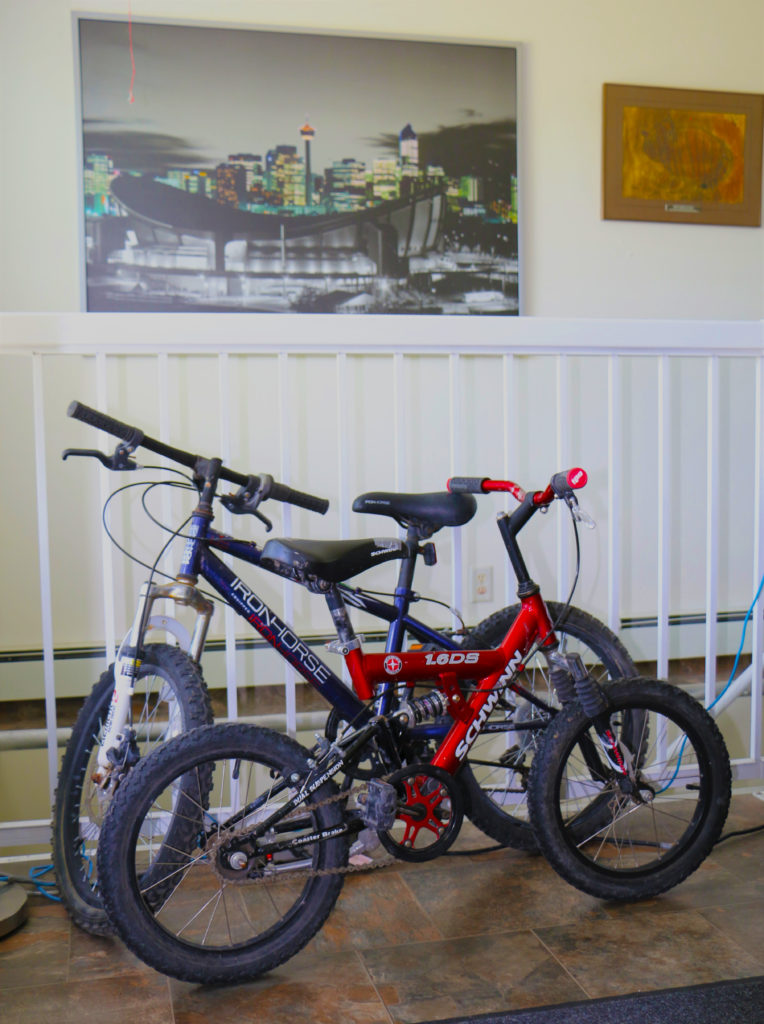
Patch, in collaboration with Hull’s Recreation Program, provides bikes to families in a safe way during the pandemic
Cue the disaster response
Once in-person delivery wasn’t possible, staff then began to assess and “triage” individuals to determine if support could be offered over the phone or if Zoom meetings were an option, understanding clients may have limited or no access to technology or very limited data plans.
Spending on basic needs takes priority, meaning many families do not have technology devices and cannot afford to go purchase them. One family had four children using one school-provided device for online learning. It wasn’t enough. Patch helped them and many others connect with schools to request hard copies of assignments rather than online versions, and reached out to Shaw and Telus to learn about unlimited data options to help offer no-cost solutions.
Lack of access to technology impacts more than kids. Many people visit their Patch hub for faxing, printing and computer access. Staff coached and supported people over the phone on how to take a picture with their phone and send it that way, and created drop spots where papers to be faxed could be dropped off with the understanding staff wouldn’t touch it for a safe period of time.
Sometimes technology wasn’t the answer. One person who was an English Language Learner had worked very hard independently on an important document, but required some assistance with completing it. After exhausting other options, Patch staff worked with her on opposite sides of a window to complete it.
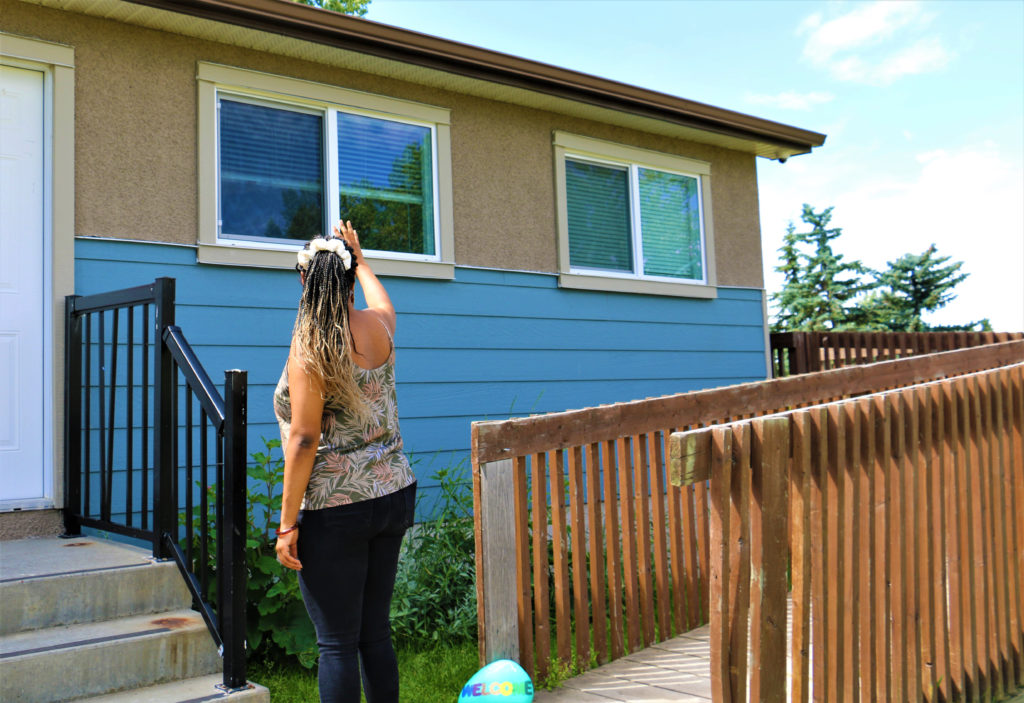
Patch staff find creative ways to adjust their services, like supporting the community safely through their windows
Timing played a factor as well. Patch staff are trained as financial coaches and also offer tax-return support which is a popular service. Last year Patch completed 319 tax returns. The pandemic hit its peak during tax season meaning only two out of nine scheduled tax clinics could be held. Patch revised the process eight times to adapt and comply with public health orders and the various needs of those they serve. Paper drops, returns done over the phone and online coaching were used here as well to ensure everyone received the support they needed.
One older couple and their daughter were managing medical issues, immunocompromised and unable to safely leave their home. They were required to complete their taxes to access much needed benefits for support and to receive their tax refund. Patch made that possible, even mailing their return and sparing them the dangerous trip to the post office.
Food support is another key component of Patch’s offerings. Many families rely on the Food Bank or suddenly needed to with job losses. Changes to Food Bank operations during the initial stages of COVID, reduced public transportation and other factors meant clients were not able to access food support. Unable to provide emergency food hampers, Patch then started providing grocery store gift cards.
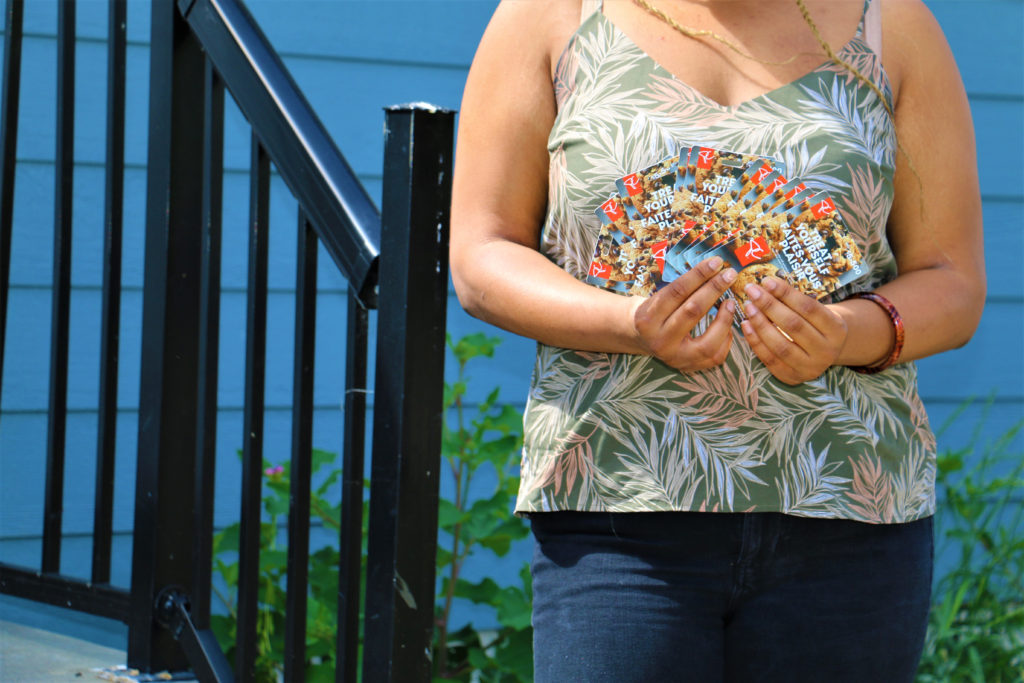
Patch began handing out grocery store gift cards as an alternate way to provide food support during the pandemic
Community response and partners like I Can for Kids have been incredible in their support, rising to the challenge and finding new ways to ensure kids and families have food.
“It’s difficult to create a bridge of trust from a distance with language and technology barriers,” says McGarrigle. “I’m proud of our team and the people we serve for their commitment and adaptability throughout these challenging times.
What is the Patch Program?
Patch is a neighbourhood hub located in three Calgary Housing Company (CHC) complexes. It is a place where people with low income can receive free supports and services, meet neighbours, learn about resources and how to navigate community and government systems.
Patch offers walk-in, phone and on-line services. The staff are also able to meet individuals in the community for situations that require more time or support.
Patch provides six core integrative service strategies:
1) Financial empowerment
2) Community connections and social inclusion
3) Basic needs (food security)
4) Employment and education
5) Crisis support and capacity building
6) Child and family health and wellness (parenting and developmental gatherings and groups for kids)

Help Improve the Lives of Young People and Families
Like all Hull programs, Patch relies on the generous support of our community. If you would like to make a gift to help improve the lives of vulnerable individuals, young people and families, please complete the donation form below.
When you support Hull Services, you are making an investment in the lives of people. Thank you for partnering with us as we build resilience today for a brighter tomorrow!
Hull Services Acknowledges these organizations for their generous support of Patch:
